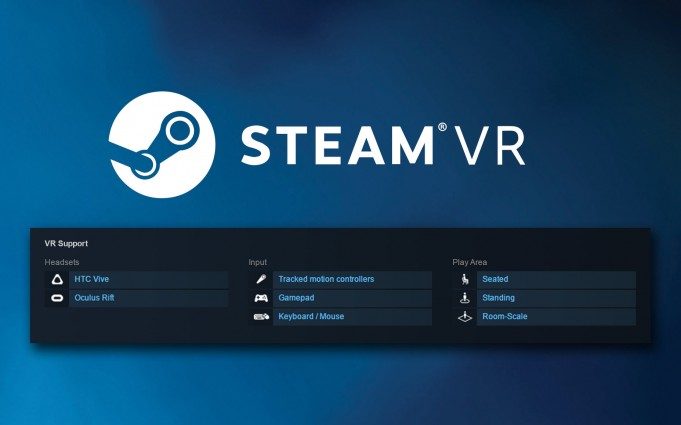In preparation for the launch of the Oculus Rift and HTC Vive, Valve has enhanced the categorization of VR games listed on Steam.
Steam first added a basic ‘VR Support’ category all the way back at the end of 2013, back when the Oculus Rift was the only consumer VR headset on the map (long before the announcement of the HTC Vive). Spotted by Reddit user MissStabby, the company has now expanded on the categorization structure of virtual reality games sold through Steam.
The enhancements now detail the specific headset which the game supports (currently between the Rift and the Vive), the type of input the game supports (keyboard, gamepad, or motion controller), and the Play Area (seated, standing, or room-scale).
This move is further indication that Valve plans to support not only the HTC Vive through SteamVR, but also the Oculus Rift and any other headsets that use the company’s OpenVR API.
See Also: Valve Adds Support for Latest Oculus Rift SDK in SteamVR Update
Users can also use these categories in Steam search to find VR titles that suit their setup. The search page includes an expandable box on the right offering access to sort by the different VR category options. The store is currently showing 21 titles marked with Vive support and 24 with Rift support, however these numbers will increase as more developers make use of the new expanded categories (currently the more generic ‘VR Support category’ lists 235 titles).







